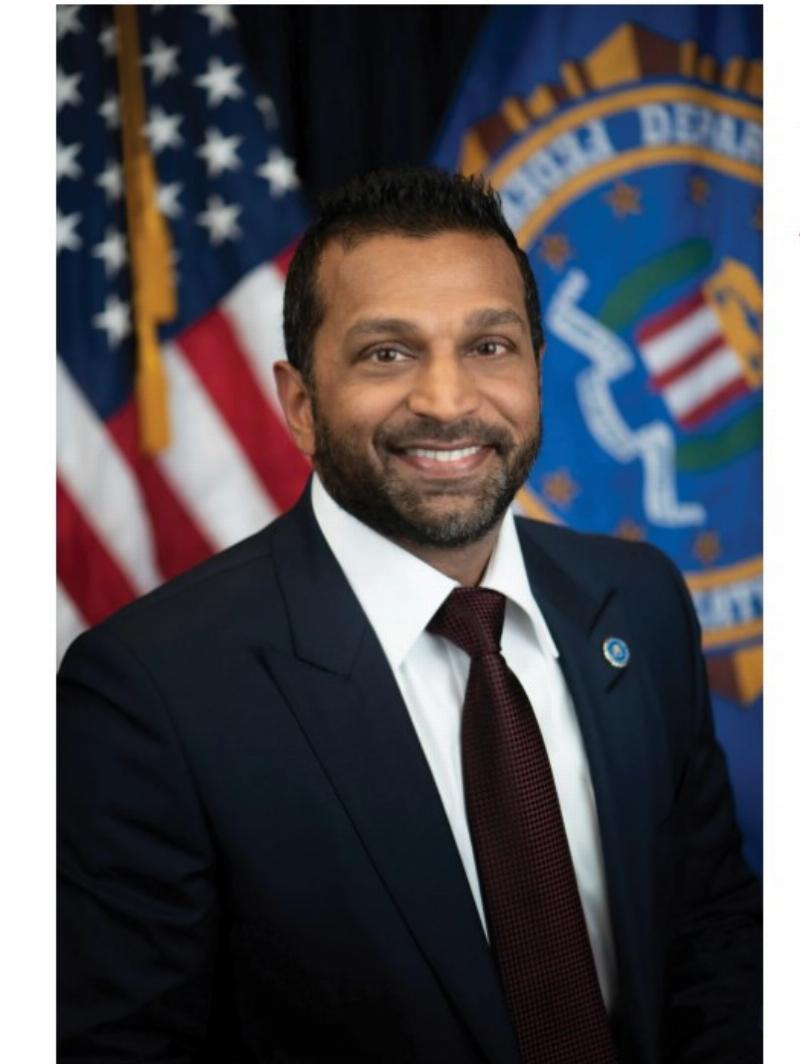


Four months ago in American Thinker, I profiled Kash Patel as a man poised to lead a new era for the FBI, a disruptor with a mandate to reform an institution long plagued by politicization.
After watching his recent, wide-ranging interview on The Joe Rogan Experience, it’s clear those reforms are not just underway they’re reshaping the Bureau in real time.
In February, I described Patel as a break from the past: Comey, Mueller, Wray—the era of leaks and theatrics. What’s unfolded since then is something far more sweeping than expected. Behind closed doors and under public scrutiny, Patel has begun dismantling the rot and rebuilding an FBI grounded in law, not politics.
From the moment he took the reins, Patel says he was greeted by seasoned agents with a simple message: "We’ve been waiting 15 years for this." That kind of reception isn’t about personality. It signals long-standing frustration within the ranks and real hunger for change. One of Patel’s first moves was to redeploy 1,500 agents from D.C. into field offices across the country, rebalancing priorities toward on-the-ground crime-fighting instead of Beltway optics. These are not surface-level gestures they are structural corrections.
Patel also tackled the fentanyl crisis head-on, calling it what many hesitate to: chemical warfare with genocidal intent. He emphasized that you don’t see fentanyl deaths in places like India, “no fentanyl deaths in India,” he noted—because this isn’t accidental. “China’s long‑term plan is to use fentanyl to ‘take out generations of young men and women in the United States,’” Patel said. He described precursor chemicals shipped from China through India and trafficked via Mexico to American streets as a deliberate, coordinated assault meant to wipe out generations. He shared that he’s already in direct contact with Indian officials to disrupt the supply chain—meaning this is not just drug enforcement; its strategic diplomacy backed by intelligence.
The conversation shifted to the weaponization of federal agencies, a topic Patel knows intimately from his time as Senior Counsel and National Security Advisor to the House Permanent Select Committee on Intelligence, where he worked under Chairman Devin Nunes during the Russiagate probe. He described patterns of political targeting that aren’t just relics of the past but institutional habits requiring real accountability. From Russiagate to the selective prosecution of dissenters, Patel laid out the case for why internal reform isn’t enough without public transparency.
He also criticized the media’s role in enabling these abuses especially the suppression of the Hunter Biden laptop story ahead of the 2020 election. He called out the coordinated dismissal of the story as “Russian disinformation,” citing the now-infamous letter from 51 former intelligence officials. According to Patel, this wasn’t bad reporting it was election interference with a press badge.
The personal costs have been steep.
Just one day before taping the Rogan interview, Patel was the target of a swatting attack, a dangerous and deliberate attempt to intimidate him. Instead of focusing on his own safety, he used the moment to expose a deeper truth: in today’s system, insiders are shielded while reformers are punished. The message was unmistakable, if you tell the truth, they will come for you.
One of the most striking revelations came when Patel described finding locked, hidden rooms inside the Hoover Building, chambers he claims were deliberately concealed during James Comey’s tenure. These rooms, he said, held suppressed documents tied to Russiagate and other politically sensitive matters. He has promised full transparency with Congress. For an agency built on public trust, that’s a long-overdue reckoning.
When the conversation veered toward headlines involving Trump, Musk, and Epstein, Patel didn’t flinch but he didn’t bite either. “I know my lane,” he said, exhaling cigar smoke and steering the conversation back to institutional reform. It was a revealing moment: a man uninterested in spectacle, focused on reform.
Patel reaffirmed his support for President Trump’s leadership, noting that Trump “lets people do the job.” It was a comment that suggested both confidence in his own autonomy and a broader vote of trust in the administration’s direction.
He ended with a message aimed at those still inside the system: accountability isn’t disloyal it’s patriotic. Change starts with telling the truth, and that includes facing uncomfortable facts.
Kash Patel isn’t merely fulfilling a job description he’s redefining the role. In four months, he’s begun to reshape the FBI from within, challenging entrenched norms and setting a new tone. That matters not because he says the right things, but because he’s acting on them.
Wendy Kinney is a Christian, legal strategist, attorney, and entrepreneur committed to free speech, financial freedom, and the Constitution. As Founder & CEO of Revere Payments, she protects businesses from financial censorship, ensuring American enterprises remain free. She speaks truth to power with conviction, standing firm in faith, justice, and the unwavering belief that freedom must always be defended. Her work is rooted in light, guided by principle, and fearless in the fight for truth.
Image: Official photo // government work
